
Senior physics writer Emily Conover joined Science News in 2016. She has a Ph.D. in physics from the University of Chicago, where she studied the weird ways of neutrinos, tiny elementary particles that can zip straight through the Earth. She got her first taste of science writing as a AAAS Mass Media Fellow for the Milwaukee Journal Sentinel. She has previously written for Science Magazine and the American Physical Society. She is a two-time winner of the D.C. Science Writers’ Association Newsbrief award, and a winner of the Acoustical Society of America’s Science Communication Award.

Trustworthy journalism comes at a price.
Scientists and journalists share a core belief in questioning, observing and verifying to reach the truth. Science News reports on crucial research and discovery across science disciplines. We need your financial support to make it happen – every contribution makes a difference.
All Stories by Emily Conover
-
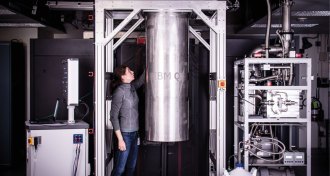 Quantum Physics
Quantum PhysicsQuantum computers are about to get real
Qubit-based machines are gearing up to solve problems that are out of reach for even the most powerful supercomputers.
-
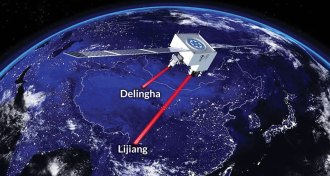 Quantum Physics
Quantum PhysicsQuantum satellite shatters entanglement record
A satellite sent entangled particles to two Chinese cities 1,200 kilometers apart.
-
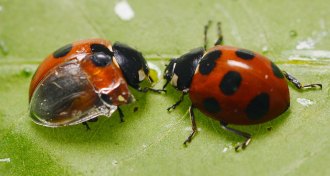 Life
LifeLadybugs fold their wings like origami masters
Ladybug wings could lead to new foldable technologies.
-
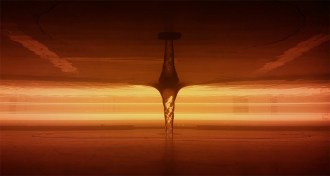 Physics
PhysicsWater circling a drain provides insight into black holes
Water waves scattering off a vortex can exhibit rotational superradiance, an effect predicted to appear in black holes.
-
 Physics
PhysicsFaux particles commit physics faux pas
Quasiparticles present in a solid material break the rules of particle physics.
-
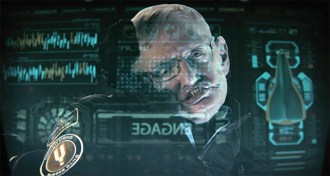 Science & Society
Science & SocietyCuriosityStream satisfies a science-hungry audience
CuriosityStream, an online streaming service, offers viewers a plethora of science documentaries, including originals from Stephen Hawking and David Attenborough.
-
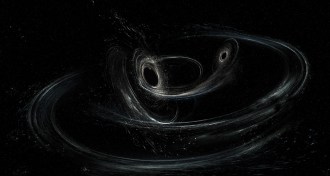 Physics
PhysicsSwift kick from a supernova could knock a black hole askew
An exploding star may have tilted the spin of one of LIGO’s black holes.
-
 Physics
PhysicsLIGO snags another set of gravitational waves
Two black holes stirred up the third set of gravitational waves ever detected.
-
 Quantum Physics
Quantum PhysicsQuantum tractor beam could tug atoms, molecules
The wavelike behavior of quantum particles could be harnessed to move atoms.
-
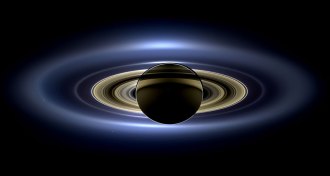 Planetary Science
Planetary Science50 years ago, an Earth-based telescope spotted Saturn’s fourth ring
Scientists now rely on spacecraft to chart the intricate rings of the gas giant.
-
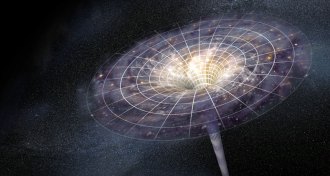 Physics
PhysicsNaked singularity might evade cosmic censor
Physicists demonstrate the possibility of a “naked” singularity in curved space.
-
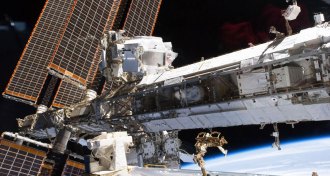 Particle Physics
Particle PhysicsAntiproton count hints at dark matter annihilation
Antimatter in cosmic rays could be a sign of dark matter.